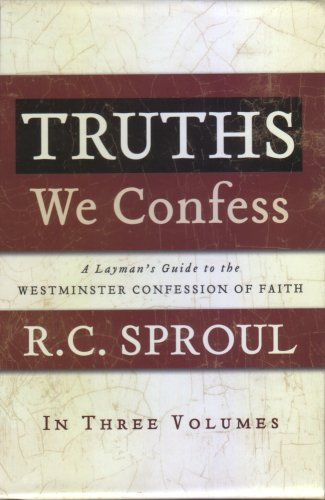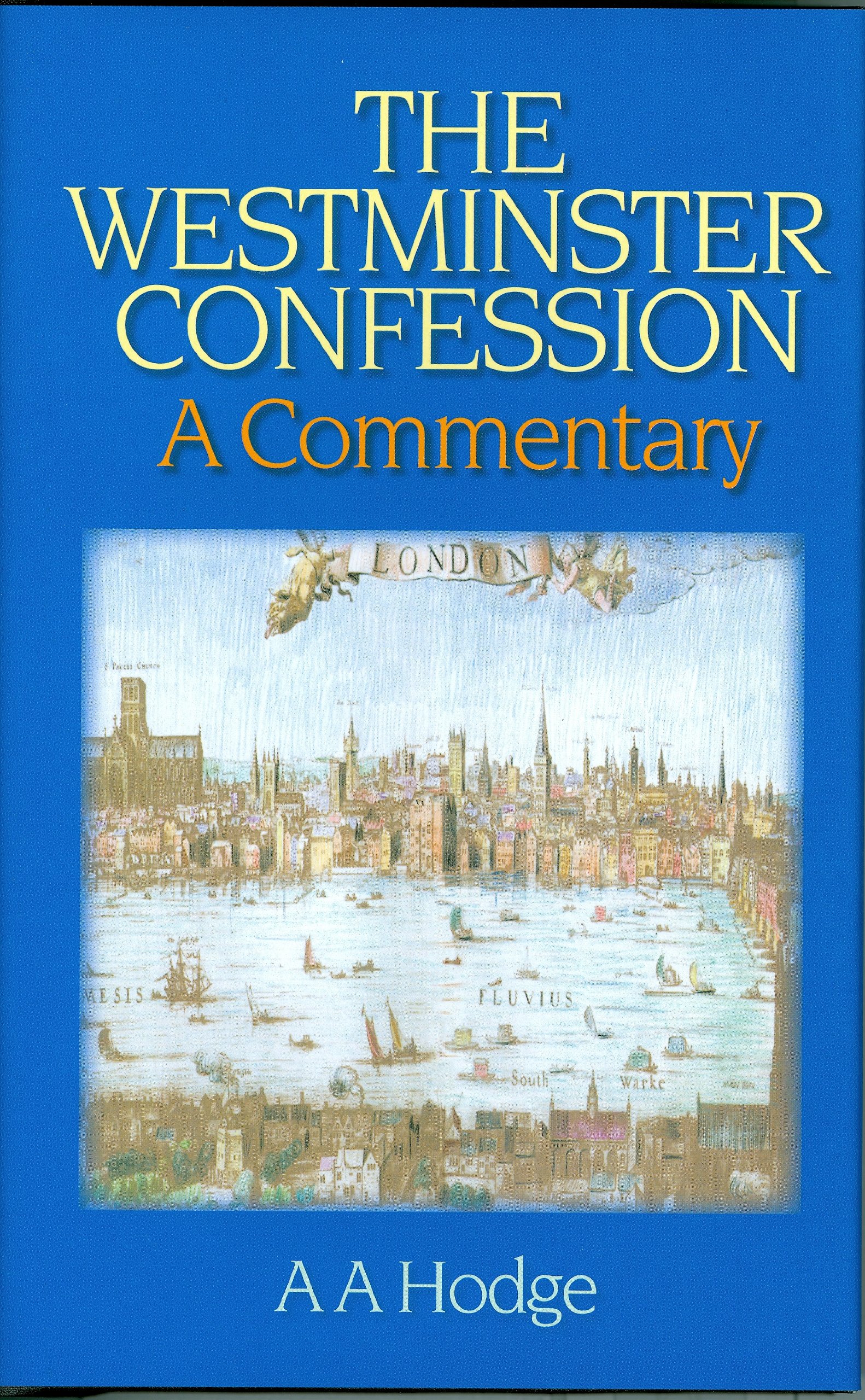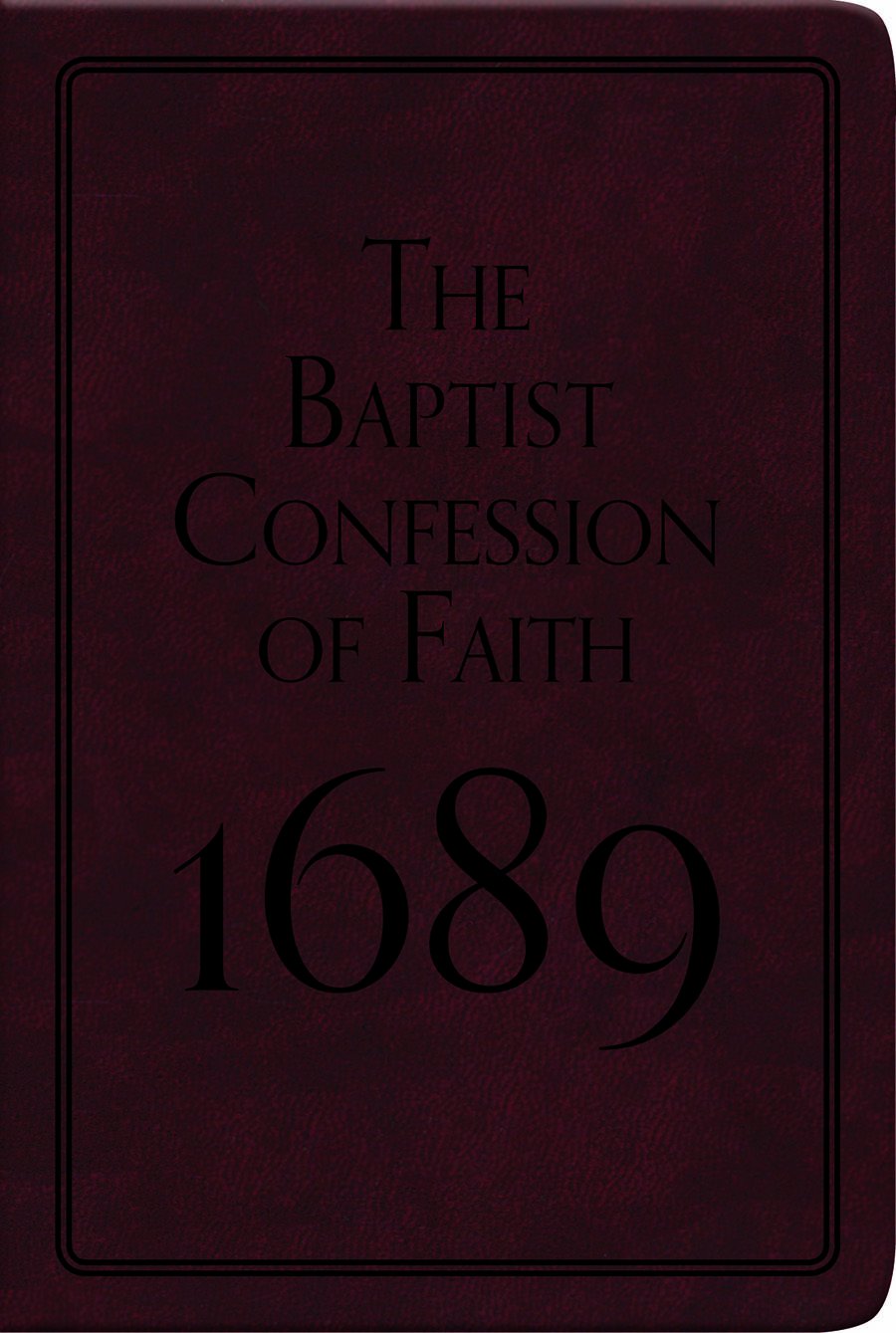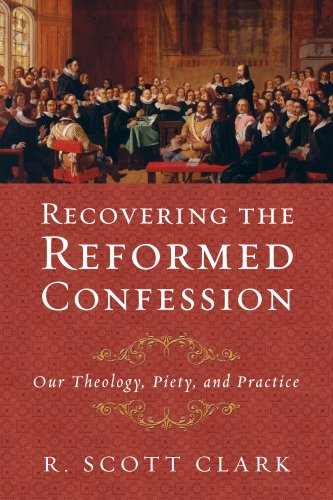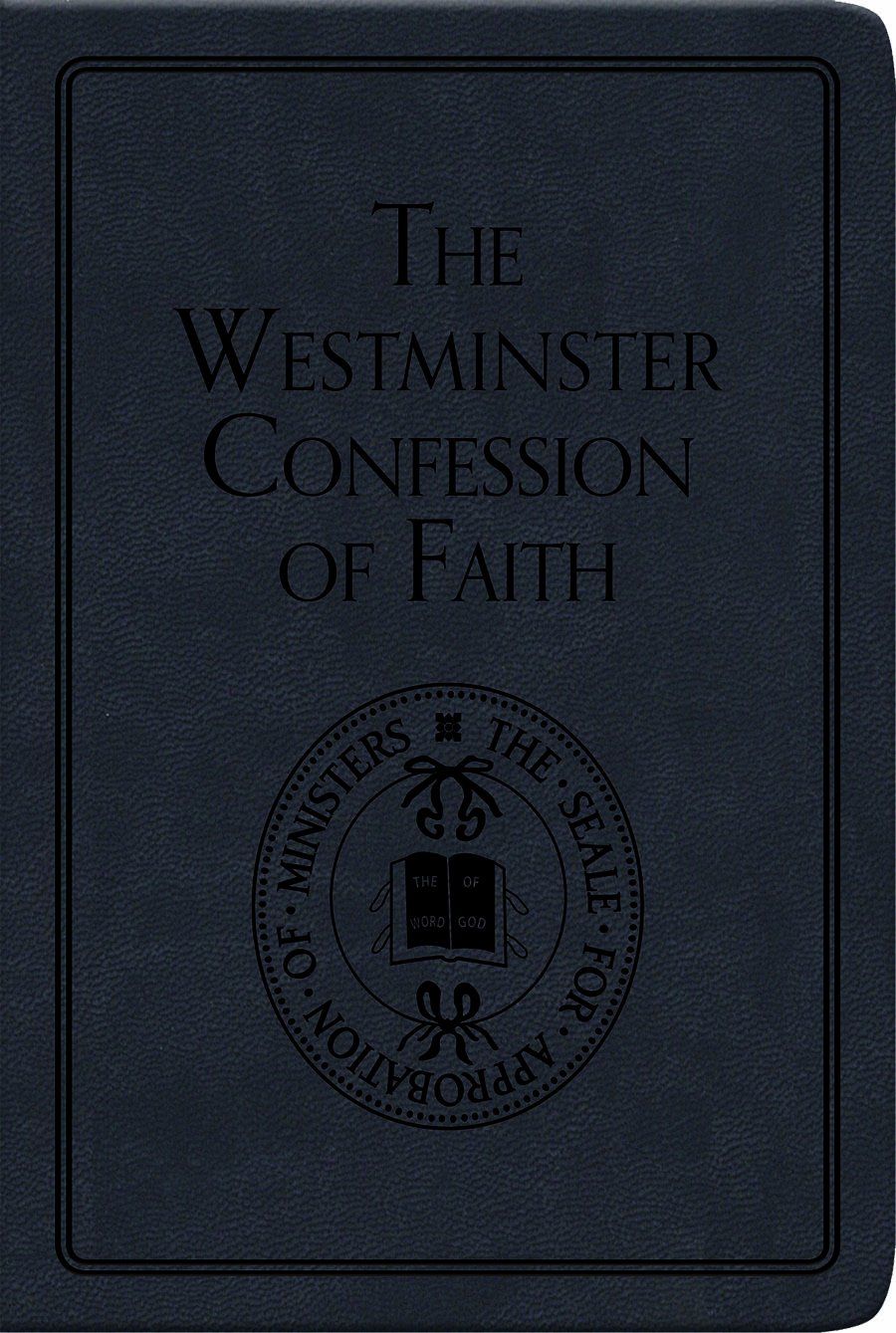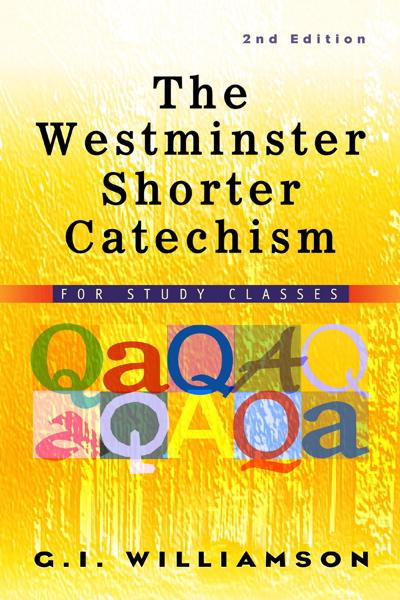Bound by the Creeds
The Reformed creeds define the Reformed faith. What it is to be Reformed, the creeds establish. The creeds are the standard against which every teaching that claims to be Reformed and clamors for acceptance by Reformed believers is to be judged.
Every Reformed believer is bound by the Reformed creeds. No one has the right to consider himself to be a Reformed Christian who blatantly contradicts what the Reformed creeds teach.
Especially is the Reformed officebearer bound by the teaching of the creeds. At ordination Reformed ministers, elders, and deacons sign the Formula of Subscription. By doing this they affirm that they “… heartily believe and are persuaded that all the articles and points of doctrine contained in the (Belgic) Confession and (Heidelberg) Catechism of the Reformed churches, together with the explanation of some points of the aforesaid doctrine made by the National Synod of Dordrecht, 1618-’19, do fully agree with the Word of God.” In the Formula, the Reformed officebearer goes on to promise “… diligently to teach and faithfully to defend the aforesaid doctrine (of the creeds), without either directly or indirectly contradicting the same, by our public preaching or writing.”
What is true with respect to all the fundamental doctrines of Holy Scripture is true of the doctrine of the last things (eschatology) and the coming of Jesus Christ. The Reformed creeds have a great deal to say on these matters. From what they say, there can be no doubt about it that the Reformed creeds endorse amillennialism.
The creeds are explicitly amillennial. The creeds leave no room for postmillennialism or premillennial-dispensationalism. No appeal can be made to the Reformed creeds in support of either of these heretical millennial positions. More than that, the Reformed creeds expressly repudiate the major tenets of both postmillennialism and premillennial-dispensationalism. On the basis of the creeds these teachings are judged as heretical. Those who hold to these teachings embrace false doctrine.
The amillennial character of the Reformed creeds is challenged today. There are those who contend that the creeds are largely silent on the matter of the millennium. Their view is that the Reformed creeds leave the issue of the millennium an open question. They go on to encourage toleration of the variant millennial views in the church. It is argued that one can be a postmillennialist or even a premillennialist and still subscribe to the Reformed creeds.
But this is not honesty to the Reformed creeds. Spokesmen for both the postmillennial and the premillennial-dispensational schools of thought of a former generation conceded this. Dr. John F. Walvoord, one of the most well known dispensationalists of recent time, wrote: “Reformed eschatology has been predominantly amillennial. Most if not all of the leaders of the Protestant Reformation were amillennial in their eschatology…” (Biblio-theca Sacra, January-March, 1951).
Samuel G. Craig, writing the biography of Benjamin B. Warfield included in Warfield’s Biblical And Theological Studies, states:
Many, perhaps most, Calvinists, not to mention evangelicals other than Reformed, do not share Warfield’s post-millennialism. Both of his great Calvinistic contemporaries, Kuyper and Bavinck, for instance, were amillennialists, as was his esteemed colleague, Gerhardus Vos, perhaps the most erudite advocate of amillennialism in America. He himself freely admitted that amillennialism, though not known in those days under that name, is the historic Protestant view, as expressed in the creeds of the Reformation period including the Westminster Standards (p. xxxix).
It is the purpose of this article briefly to demonstrate how incompatible postmillennialism and premillennial-dispensationalism are with the Reformed creeds. Our concern will be with the Three Forms of Unity, the Heidelberg Catechism and the Belgic Confession of Faith in particular.
The Reformed Creeds and Postmillennialism
The teaching of the Reformed creeds is that the New Testament, the time from Christ’s first coming until His second coming, will be a period of persecution and suffering for the true church of Jesus Christ. The creeds take the amillennial view of the progress of New Testament history, namely that apostasy and wickedness will become worse and worse. The world will become increasingly evil and the church will be more severely persecuted the nearer the second coming of Christ.
There is absolutely nothing in the Reformed creeds to suggest an earthly kingdom of peace and prosperity dominated by Christians. There is no hint in the Reformed creeds of an improving world, of righteousness prevailing on this present earth, of a “golden age” of a thousand years or more in which sin and the consequences of sin will be well nigh eradicated.
The Second Helvetic Confession (1566) expresses the Reformed consensus when it condemns all hope of an earthly kingdom as “Jewish dreams”:
And out of heaven the same Christ will return unto judgment, even then when wickedness shall chiefly reign in the world (emphasis mine, RC), and when Antichrist, having corrupted true religion, shall fill all things with superstition and impiety, and shall most cruelly waste the Church with fire and bloodshed. Now Christ shall return to redeem his, and to abolish Antichrist by his coming, and to judge the quick and the dead (Acts xvii. 31)…. Moreover, we condemn the Jewish dreams, that before the day of judgment there shall be a golden age in the earth, and that the godly shall possess the kingdoms of the world, their wicked enemies being trodden under foot; for the evangelical truth (Matt. xxiv. and xxv., Luke xxi.), and the apostolic doctrine (in the Second Epistle to the Thessalonians ii., and in the Second Epistle to Timothy iii. and iv.) are found to teach far otherwise (The Creeds of Christendom, Philip Schaff, volume 3, p. 852).
The 52nd Question of the Heidelberg Catechism asks, “What comfort is it to thee that ‘Christ shall come again to judge the quick and the dead’?” The “thee” in the question is the New Testament believer, every New Testament believer, believers in the days in which the Heidelberg Catechism was written, as well as believers today. The comfort that the 52nd Answer gives expression to is a comfort experienced in the face of “sorrows and persecutions.”
That in all my sorrows and persecutions, with uplifted head I look for the very same person who before offered Himself for my sake to the tribunal of God, and has removed all curse from me, to come as judge from heaven; who shall cast all His and my enemies into everlasting condemnation, but shall translate me with all His chosen ones to Himself, into heavenly joys and glory.
The comfort of the New Testament Christian is not fixed on some soon-coming “golden age” in which all Christ’s and our enemies shall be put down. No such false hope is presented. The hope and comfort of the Reformed believer is fixed on the second coming of Christ. Then, and only then, will His and our enemies be judged and we be glorified with Him.
The 127th Question and Answer of the Heidelberg Catechism speak of the threefold enemy of the believer, the devil, the world, and our own sinful flesh. According to the Answer, these enemies “cease not to assault us.” There never comes a time in this present age when the world is so subdued that for all practical purposes that world ceases to assault the believer. But God’s promise, the Answer points out, is to preserve us in this spiritual warfare until at last we obtain the complete victory.
Article 37 of the Belgic Confession presents the same scenario. In the final judgment, elect believers
… shall see the terrible vengeance which God shall execute on the wicked, who most cruelly persecuted, oppressed, and tormented them in this world; and who shall be convicted by the testimony of their own consciences, and, being immortal, shall be tormented in that everlasting fire which is prepared for the devil and his angels.
The article goes on to say that it is only at this second coming of Christ and the time of the final judgment that
… the faithful and elect shall be crowned with glory and honor; and the Son of God will confess their names before God His Father, and His elect angels; all tears shall be wiped from their eyes; and their cause, which is now (emphasis mine, RC) condemned by many judges and magistrates as heretical and impious, will then (emphasis mine, RC) be known to be the cause of the Son of God.
There is no notion in the Belgic Confession of a future “golden age.” There is nothing of the hope of an earthly kingdom in which finally the world’s rulers will promote and enforce the law of God. On the contrary, in this world the persecution which the Reformed churches in the Lowlands experienced – de Brès himself suffering martyrdom – will to a greater or lesser degree be the experience of the church until the return of Christ.
This is confessional amillennialism.
The Reformed Creeds and Premillennial-Dispensationalism
With the same rigor with which the Reformed creeds repudiate postmillennialism, they reject also premillennial-dispensationalism.
It was for this reason that D.H. Kromminga, sympathetic to the main tenets of premillennialism, attempted to persuade the Christian Reformed Church in the 1940s to change Article 37 of the Belgic Confession. In Perspectives on the Christian Reformed Church, in a chapter entitled “The Premillennial Eschatology of Dietrich Hinrich Kromminga,” Harry R. Boer writes,
For the most part (sic) premillennialism cannot be harmonized with the official Reformed creedal basis. Article 37 of the Belgic Confession, one of the three creeds of the CRC, teaches ‘…we believe … that, when the time appointed by the Lord … is come and the number of the elect complete … our Lord Jesus Christ will come from heaven … to declare Himself Judge of the living and the dead.’ For Kromminga the critical phrase in the statement was ‘and the number of the elect complete.’ This confessional assertion effectively bars belief in the return of Christ before a millennial period in the course of which men will be brought to Christ to complete the fullness of the church and thereby the fullness of the elect (p. 153).
If the Reformed faith parts ways with Roman Catholicism over the little word “alone” (grace alone, faith alone, Christ alone, Scripture alone), it parts company with premillennial-dispensationalism over the word “one.” That little word, all by itself, is the difference between Reformed amillennialism and the premillennial-dispensational teaching that is at odds with Reformed amillennialism. The Reformed amillennialist teaches one people of God in both the Old and New Testaments, one coming of Jesus Christ, one resurrection, one final judgment.
Both Heidelberg Catechism, Question and Answer 52, and Article 37 of the Belgic Confession speak of the(in the singular) final judgment. There is no mention anywhere in these creeds of another judgment than this judgment. In the same places, these creeds speak of the coming of Christ, not of comings of Christ. And absolutely no notion of a secret rapture.
Consistently the creeds identify the church of the Old Testament and the church of the New Testament. They are fundamentally one.
It will suffice to refer in this connection to the Heidelberg Catechism. According to Question and Answer 19 of the Catechism, the same gospel that is preached in the Reformed church today was the gospel first revealed by God in Paradise, afterwards published by the patriarchs and prophets, and represented by the sacrifices and other ceremonies of the Old Testament law. Question and Answer 31 make Christ our King, that is, the King of New Testament believers. According to Question and Answer 54, the church, the one church, is gathered by the Son of God from the beginning to the end of the world. Question and Answer 74 deal with infant baptism. In the 74th Answer there is identification made between the old and the new covenant. Essentially there is one covenant of God, so that baptism replaces circumcision. And Question and Answer 123 identify the church and the kingdom of God.
Article 25 of the Belgic Confession is a very decisive article in repudiating premillennial-dispensationalism. The article is entitled, “Of the abolishing of the Ceremonial Law.” With regard to the ceremonies and sacrifices of the Old Testament, it is the teaching of the article “… that the use of them must be abolished amongst Christians.” That is significant! The creedal Reformed position is that the ceremonies and sacrifices of the Old Testament have been abolished, abolished once and for all, abolished forever. They have not been temporarily set aside in order after the present hiatus to be restored in some future millennial kingdom, as is the teaching of premillennial-dispensationalism. They have been abolished!
Amillennialism is the creedal Reformed position. To embrace the Reformed confessions is to embrace amillennial eschatology. To reject amillennialism, whether for postmillennialism or premillennial-dispensationalism, is necessarily to reject the Reformed creeds.
But the Reformed creeds, in this critical matter of the doctrine of the last things and the return of Christ, are biblical.
